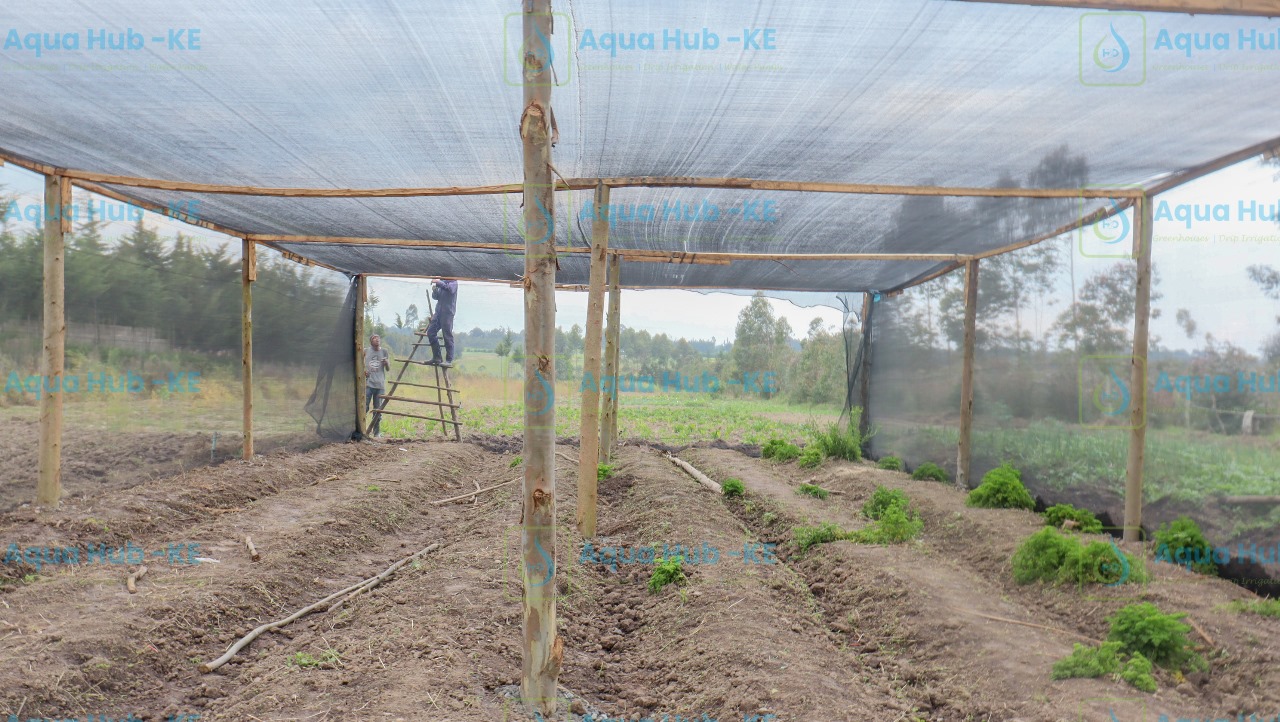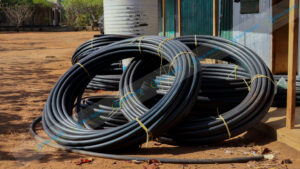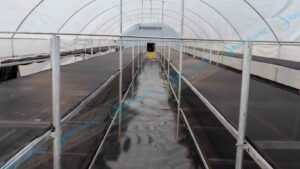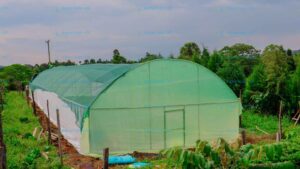The cost of shade nets in Kenya is from KES 65 to KES 135 per square meter and KES 13,000 to KES 36,000 per full roll.
The shade net roll material can be 35%, 55%, 75% and 90 % sunlight filtration level.
Shade Net for Sale in Kenya
Shade Nets by Aqua Hub Kenya are special netting fabric purposely for use in agricultural farming due to its sunlight filtration effect. Despite its breathable nature, it keeps out some percentage of sunlight depending on the fabric density or design. Unlike greenhouse polythene material, shade net enhance airflow, thus it is possible to regulate temperature and humidity efficiently.
Where to Buy UV Treated Shade Nets in Nairobi
Buy UV treated Shade Nets at Aqua Hub LTD, now available in 4 by 50 m rolls. Options to choose from include 35%, 55%, 75% and 90 % nets which are either green or black in color.
How Important are Shade Nets?
Shade Nets are vital for shielding crops from harsh climate specifically harsh sunlight in hot and dry areas such as Machakos, Laikipia, Kitui, and Kajiado. Other than that shade net materials are best for:
- Preventing excessive water loss caused by evaporation.
- Protecting seedlings or delicate crops.
- Blocks animal interference.
- Shade nets are also convenient allow temperature regulation thus optimal conditions for growth.
- Reducing soil degradation by preventing impact of heavy rainfall.
Shade Net Price in Kenya Per Filtration Level
Shade Net Prices in Kenya are as follows.
| Shade Net Level (%) | Shade Net Price (Full roll) |
| 35% | KES 13,000 |
| 55% | KES 19,000 |
| 75% | KES 26,000 |
| 90% | KES 36,000 |
Types of Shade Nets
Knitted Shade Nets
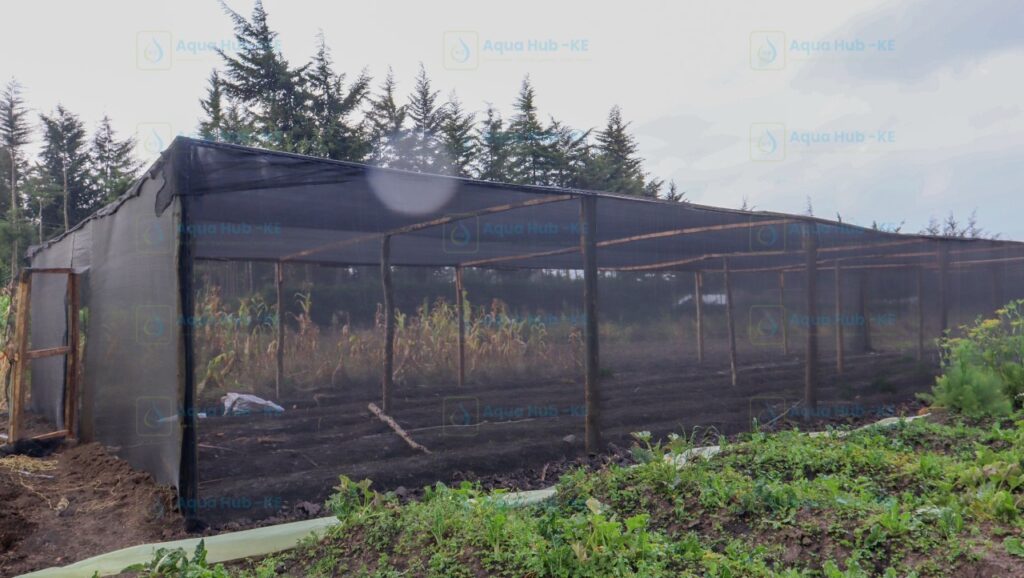
Shade Nets which are designed with interlocked threads made from Polyethylene material. The threads are knitted to form equal airspaces thus forming uniform shade effect.
Woven Shade Net
For woven shade nets, the net is woven to provide 100 % sunlight filtration. They are highly durable and resistant to wear.
Recommended Shade Nets for Different Crops
35% Shade Net
- Tomatoes
- Peppers
- Eggplants
- Squash
- Beet root
- Carrots
55% Shade Net
- Kales
- Spinach
- Lettuce
- Swiss Chard
75 % Shade Net
- Tree Seedlings (Cypress, Cedar, eucalyptus, etc….)
- Fruit Seedlings such as avocado, apple, papaya, mango, citrus
- Vegetable Seedlings
90 % Shade Net
- Ferns
- Herbs (chives, coriander, cilantro, and oregano)
- Flowers such as bougainvillea, roses, etcetera.
How Long Will My Shade Net Last?
Our shade nets are durable for 3 – 5 years. The variation in number of years depends on the shade net sunlight filtration.
What to Consider When Buying Shade Nets
Crops grown
Crops have varying sunlight requirements which in turn affect the shade net required for optimal growth. Use a higher filtration shade net for shade loving crops and lower one for low shade requirement crops.
Region or Climate
The climatic conditions or region where you want to use the shade net affects the choice of net to use. For hotter areas, use a UV treated shade net to ensure it can last longer.
Size
The size of the area you want to shade will determine the size of the shade net to buy.
Durability
The durability or how long a shade net will last determine the choice you should consider. Choose UV treated shade nets to benefit from long term performance.
Which Shade Net Color to Buy?
It depends on your area or place where you are going to farm with your net. For extremely hot areas, a green net is ideal while for areas with low sunlight you can use a black net to absorb heat.
Shade Net Uses in Kenya
- Agricultural Crop Protection – crops are grown under shade net structures to shield unfavorable conditions and allow for ideal temperature and humidity.
- Greenhouse Structure Shading – In hot areas, greenhouses are also covered with shade nets to reduce the heat or sunlight penetration.
- For Horticultural farming – flowers and variety of fruits are grown under a shade net because they require optimal sunlight conditions.
- Fencing Compounds – to make temporary fences at compounds and parks to prevent birds and rodents.
- Fish farming – to shield fishponds and protect fish from predator birds.
- Dam Water protection – used as covers for dams and ponds to prevent evaporation of water. Also keeps debris from polluting the water.
Advantages of Shade Nets
- Pest and Disease Control – prevent heat, pest pressure reduce thus disease also reduce.
- Enhances moisture retention – cuts down evaporation rates by reducing sunlight effect.
- Saves on Water use – less water will be required due to high soil moisture retention.
- Improved soil health and fertility – organic matter of the soil remains protected from harsh radiation.
- High Yield and Quality Produce – because of optimal conditions, crops grow and mature well.
- Enhances year-round production – allows crops to be grown even during the periods of dry conditions.


